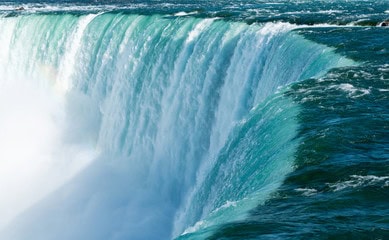Hydration: The Foundation Nobody Talks About

Man, if I had a dollar for every time someone asked me about the “secret” to getting fit, I’d probably own my own gym chain by now. https://www.rushwalter.com/your-body-your-temple/ They want to know about the latest supplement, the perfect workout split, or some magical diet plan. But you know what nobody ever asks about? Water.
Yeah, plain old H2O. The stuff that makes up about 60% of your body weight and is literally involved in every single biological process happening inside you right now. After three decades in this industry, I can tell you that proper hydration is probably the most overlooked foundation of health and fitness success.
Why Most People Are Walking Around Half-Dead
Here’s the thing that drives me absolutely nuts – most people are chronically dehydrated and don’t even know it. They’re wondering why they feel sluggish, why their workouts suck, why they can’t lose weight, or why their skin looks like sandpaper. Meanwhile, they’re sipping on one measly bottle of water all day and wondering what’s wrong.
I learned this lesson the hard way during my first endurance bicycling training cycle several decades ago. I was following this elaborate training plan, eating all the right foods, getting my sleep, but I felt like garbage. My coach asked me to track my water intake for one week, and let me tell you, it was embarrassing.
I was barely hitting 40 ounces a day. That’s less than what most people drink in coffee! No wonder I was dragging myself through workouts and recovering like I was 90 years old.
The general recommendation is about half your body weight in ounces per day. So if you weigh 160 pounds, you need roughly 80 ounces of water daily. But here’s where it gets tricky – that’s just the baseline for a sedentary person in moderate temperatures.
The Real Deal on Daily Water Needs
If you’re active, live in a hot climate, drink caffeine, or consume alcohol, you need more. A lot more. During my equipment delivery days, when I was hauling treadmills and weight benches in 90-degree heat, I was easily going through 120-140 ounces of water just to stay functional.
Here’s what I tell my online clients: start with that half-your-body-weight formula, then add 12-16 ounces for every hour of exercise, plus extra if you’re sweating buckets or drinking anything that acts as a diuretic.
And please, for the love of all that’s holy, don’t wait until you’re thirsty to drink water. Thirst is like your car’s low fuel light – by the time it comes on, you’re already running on fumes.
What Dehydration Actually Does to Your Body
Most people think dehydration just means you’re a little thirsty. Wrong. Even mild dehydration – we’re talking just 2% of your body weight in fluid loss – can mess you up in ways you wouldn’t expect.
Your blood volume decreases, which means your heart has to work harder to pump oxygen and nutrients to your muscles. Your core temperature regulation goes haywire, so you overheat faster during workouts. Your joints don’t lubricate properly, leading to increased injury risk and general achiness.
But here’s the kicker that really got my attention – dehydration directly impacts your metabolism. https://www.rushwalter.com/the-temple-maintenance-program-biblical-stewardship-of-your-aging-body/ When you’re not properly hydrated, your liver has to help your kidneys process waste instead of focusing on fat metabolism. It’s like asking your engine to run on three cylinders instead of four.
The Weight Loss Connection Nobody Talks About
Speaking of metabolism, let me share something that blew my mind when I first learned about it. Proper hydration can increase your metabolic rate by up to 30% for about an hour after drinking water. Thirty percent!
I had this client a few years back who was doing everything right with her diet and exercise but couldn’t break through a plateau. We added just 16 more ounces of water to her daily intake, spread throughout the day, and she dropped 4 pounds in two weeks without changing anything else.
Water also helps with appetite control. Sometimes when you think you’re hungry, you’re actually just thirsty. Your hypothalamus controls both hunger and thirst, and the signals can get crossed. I’ve seen people cut their snacking in half just by staying properly hydrated.
Performance and Recovery Benefits
Now, from a performance standpoint, proper hydration is absolutely crucial. Your muscles are about 75% water, and even small decreases in hydration can significantly impact strength and endurance.
I remember one particularly brutal summer when I was training for an endurance bicycling event in the North Georgia mountains. I thought I was drinking enough water, but my hill climbing was suffering. Pedaling uphill made me think I had a flat or two, and my completion times were just embarrassing.
My training partner suggested I track my hydration more carefully, and sure enough, I was coming up short. Within a week of proper hydration, my strength was back, and I felt like I had superpowers on the bike again.
Recovery is where hydration really shines though. Water helps transport nutrients to your muscles and remove metabolic waste products. When you’re properly hydrated, those post-workout muscle aches don’t last as long, and you’re ready to train again sooner.
The Quality Question
Not all water is created equal, and this is where things get interesting. https://www.rushwalter.com/the-daniel-plan-for-christians-over-50-holistic-health-gods-way/ Tap water is fine for most people, but depending on where you live, it might contain chlorine, fluoride, or other chemicals that some folks are sensitive to.
I invested in a good water filter system several years ago, and I swear the water tastes better and I feel better drinking it. Whether that’s placebo effect or real, I don’t really care – if it helps me drink more water, it’s worth it.
Electrolyte balance is important too, especially if you’re sweating a lot. Plain water is great, but if you’re doing intense workouts or working in hot conditions, you might need to replace sodium, potassium, and magnesium along with fluids. Watermelon works well when in season.
Practical Hydration Strategies That Actually Work
Here’s what I’ve learned works in real life, not just in theory. First, drink a big glass of water as soon as you wake up. Your body just went 6-8 hours without any fluid intake, so you’re starting the day behind the eight ball.
Keep a water bottle with you at all times. I don’t care if it’s fancy or just a old sports bottle – having water visible and accessible makes a huge difference. Out of sight, out of mind.
Set reminders on your phone if you have to. I know it sounds silly, but some of my online clients swear by this strategy. Every two hours, drink 8-10 ounces. Make it automatic.
Timing Your Hydration
Don’t chug a gallon of water all at once and think you’re good for the day. Your kidneys can only process about 8-10 ounces per hour, so anything beyond that is just going to end up in the toilet.
Spread your intake throughout the day. I like to front-load a bit – drinking more in the morning and early afternoon, then tapering off in the evening so I’m not waking up every two hours to use the bathroom.
Before workouts, aim for about 16-20 ounces in the 2-3 hours before training. During exercise, sip 6-8 ounces every 15-20 minutes if you’re sweating heavily. After workouts, replace about 150% of what you lost through sweat.
The Biblical Perspective on Caring for Your Body
You know, there’s wisdom in Scripture about taking care of the body God gave us. Psalm 139:14 says, “I praise you because I am fearfully and wonderfully made; your works are wonderful, I know that full well.”
Our bodies are incredible machines, designed with amazing precision. Every cell, every organ system, every biological process points to intelligent design. Proper hydration is just one way we can honor that design and steward what we’ve been given.
Making It Sustainable
The biggest mistake I see people make is trying to go from drinking maybe 20 ounces a day to chugging 100 ounces overnight. That’s a recipe for spending your entire day in the bathroom and giving up after three days.
Start where you are and gradually increase by 8-16 ounces per week until you hit your target. Your body needs time to adapt, and your bladder will thank you for the gradual approach.
Also, remember that about 20% of your daily fluid intake comes from non-processed food. Fruits, vegetables, soups, and other foods contribute to your hydration status. So don’t stress if you’re not hitting your exact water target every single day.
Working with an Online Coach
This is where having guidance makes a real difference. When I work with online clients, hydration assessment is always part of our initial consultation. We look at their current intake, their activity level, their environment, and their individual needs.
Everyone’s different. Some people need more water due to medications they’re taking, medical conditions, or just individual variation. Having someone who understands these nuances and can adjust recommendations accordingly is invaluable.
I’ve been able to help people all over the country optimize their hydration strategies through virtual coaching. It’s amazing how something as simple as proper water intake can be the missing piece that unlocks better energy, performance, and results.
The Bottom Line on H2O
After thirty-plus years in this business, I can tell you that hydration is one of those fundamentals that separates people who succeed long-term from those who struggle. It’s not sexy, it’s not complicated, but it’s absolutely essential.
Your body is roughly 60% water for a reason. Every chemical reaction, every nutrient transport, every waste removal process depends on adequate hydration. When you get this foundation right, everything else becomes easier.
Start tracking your water intake for a week. You might be surprised by what you find. And if you need help dialing in your hydration strategy along with the rest of your health and fitness plan, that’s exactly the kind of personalized guidance I love providing through my online coaching programs.
Remember, small changes in the fundamentals create big changes in results. Water might not be the most exciting topic in fitness, but it’s definitely one of the most important.
Thanks for reading this fitness blog. I hope you enjoy a healthy day, Walter






